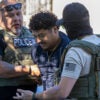Following the completion of a six-month investigation, the House Homeland Security Committee’s Task Force on Combatting Terrorist and Foreign Fighter Travel released a final report on Tuesday, September 29. The bipartisan Task Force was formed in March with the primary purpose of reviewing both classified and unclassified information regarding the increased number of foreign fighters traveling to Iraq and Syria to join the so-called Islamic State (ISIS).
Over 25,000 foreign fighters, including more than 250 Americans, have traveled to Iraq and Syria to join ISIS since 2011, making ISIS the initiator of what the report describes as the “largest global convergence of Jihadists in history.” According to the report, ISIS has now gained support from foreign fighters who originate from more than 100 countries.
The first “Key Finding” of the report stated that the United States “lacks a comprehensive strategy for combatting terrorist and foreign fighter travel.” The U.S. has been largely unsuccessful in preventing the recruitment of new foreign terrorist fighters (FTFs) and the detainment of known extremists leaving for Iraq and Syria. The report further stated that only a fraction of American FTFs have been caught.
The Homeland Security Committee’s report highlighted the three main threats of this phenomenon:
- The rise of FTFs presents a serious threat to U.S. national security and other Western states as the global terrorist networks of ISIS and other radical Islamist terror groups expand to include new states and regions.
- The training and experience of the FTFs will enable them to carry out more attacks at home and abroad.
- The FTFs can freely engage in global recruitment operations that seek to encourage individuals and groups to join ISIS and/or engage in terrorist activities in their respective countries.
The report called for the executive branch to present to Congress a new plan for dealing with the FTF problem. The current formal plan for combatting terrorist travel, known as the “National Strategy to Combat Terrorist Travel,” was presented in 2006 and, according to the report, is “outdated.” As social media outlets have been the primary recruitment tool for ISIS foreign fighters, the report also stressed the importance of watch-listing, information-sharing, and even grassroots efforts to prevent the recruitment of new FTFs. The report noted that in the cases where individuals were prevented from leaving and joining, private tipoffs were among the leading sources of detainment and arrests.
More can and should be done to stop terrorist travel. Congress should ensure that law enforcement and intelligence officials have the tools they need to lawfully detect and track terrorists. Congress should also do more to strengthen the FBI’s intelligence capabilities and personnel and ensure that federal officials share information with local officials who may be in the best position to notice when a terrorist plot or travel attempt is underway.
For more information on how the U.S. can meet the challenges arising from the foreign fighter phenomenon, watch out for a forthcoming Special Report on the topic by The Heritage Foundation.
Thomas Whittaker is currently a member of the Young Leaders Program at The Heritage Foundation. For more information on interning at Heritage, please click here.































